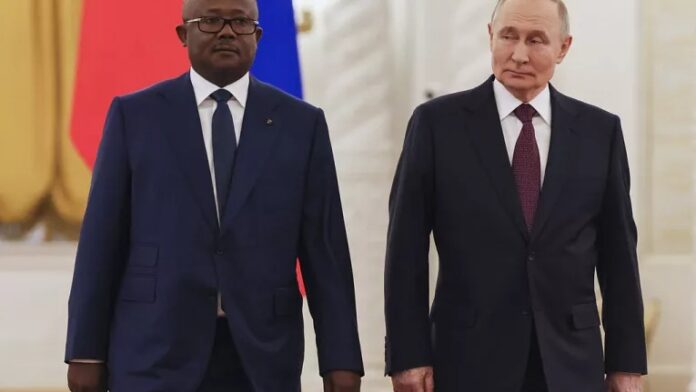A West Africa regional mission from ECOWAS has left Guinea-Bissau after President Umaro Sissoco Embaló threatened to expel the delegation. The ECOWAS team had been in the country to help craft a political consensus and a roadmap for elections planned for later this year. They had prepared a draft agreement outlining steps toward inclusive and peaceful elections but departed following Embaló’s warning, signaling a setback for regional efforts to stabilize the country’s political timeline.
What happened
- ECOWAS mission in Guinea-Bissau: Sent to facilitate political consensus and draft a roadmap for elections this year.
- Departure: The team left early after President Embaló threatened to expel them, citing concerns over sovereignty and timing.
- Next steps: The delegation will present its report to the ECOWAS president, including recommendations for an agreement aimed at inclusive and peaceful elections.
Context and background
- Political standoff: Guinea-Bissau has been grappling with intense political tension over when Embaló’s five-year mandate ends. The opposition contends that his term expired last week, while the Supreme Court of Justice ruled the term ends on September 4.
- Election delays: A planned general election was due last November, but Embaló postponed it and later announced new elections for November 30 this year, drawing opposition objections.
- History of instability: Since independence in 1974, Guinea-Bissau has experienced multiple coups and attempted overthrows, including a significant challenge in December 2023 that led Embaló to dissolve parliament, which was dominated by opposition parties.
- Domestic response: The opposition held nationwide strikes, while security forces were deployed in the capital in response to protests surrounding the constitutional deadline and the postponement of elections.
- International angle: Embaló’s recent outreach included a trip to Moscow, where he reportedly discussed deeper cooperation with Russia, a development that could have regional and international implications.
Why this matters
- Regional mediation under strain: The ECOWAS withdrawal underscores growing friction between Guinea-Bissau’s leadership and regional mediators who seek a credible, transparent electoral process.
- Potential impact on governance: Delays in elections and contested timelines risk further political polarization, eroding public trust in institutions and complicating governance.
- Human and political stability: The outcome will influence ongoing concerns about stability, civil liberties, and the ability of Guinea-Bissau to conduct fair elections that reflect the will of its citizens.
What to watch next
- ECOWAS recommendations: The contents of the report delivered to the ECOWAS president and any subsequent regional recommendations for moving toward elections.
- Domestic reactions: How Embaló and the government respond to the ECOWAS departure and proposed roadmap, including any new timeline or concessions.
- Legal developments: How the Supreme Court’s interpretation of term limits interacts with parliamentary dissolutions and upcoming electoral planning.
- International responses: Any statements or involvement from other regional or international actors regarding Guinea-Bissau’s electoral process and governance.

